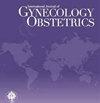Evaluation of sonographic and clinical measures in early versus late third trimester for birth weight prediction
Abstract
Objective
To evaluate the optimal timing for fetal weight estimation during the third trimester.
Methods
This retrospective cohort study involved fetal weight estimations from both early (28+0–36+6 weeks) and late (37+0 weeks and beyond) third trimester. These estimations were converted to predicted birth weights using the gestation-adjusted projection formula. Birth weight predictions were compared with actual birth weights, to identify the most effective timing for weight prediction.
Results
The study included 3549 cases, revealing mean percentage errors (MPE) of −3.69% for early sonographic assessments, −2.5% for late sonographic assessments, and −1.9% for late clinical assessments. A significant difference was found between early and late sonographic estimations (P < 0.001), whereas late sonographic and clinical assessments did not differ significantly (P = 0.771). Weight predictions for fetuses below the 10th and above the 90th centiles were less accurate than for those within the 10th–90th centiles (P < 0.001). In women with obesity, late clinical estimations were less precise (MPE of −5.85) compared with non-obese women (MPE of −1.66, P < 0.001). For women with diabetes, early sonographic estimations were more accurate (MPE of −1.31) compared with non-diabetic patients (MPE of −3.94, P < 0.001) though this difference did not persist later in pregnancy.
Conclusion
Sonographic and clinical weight predictions in the late third trimester were more accurate than earlier third-trimester sonographic assessments, hence continuous follow up and assessments closer to term are important. In women with diabetes, no adjustments in weight prediction methods are necessary. Accurately predicting birth weights for abnormally small or large fetuses remains challenging, indicating the need for improved screening and diagnostic strategies.


 求助内容:
求助内容: 应助结果提醒方式:
应助结果提醒方式:


